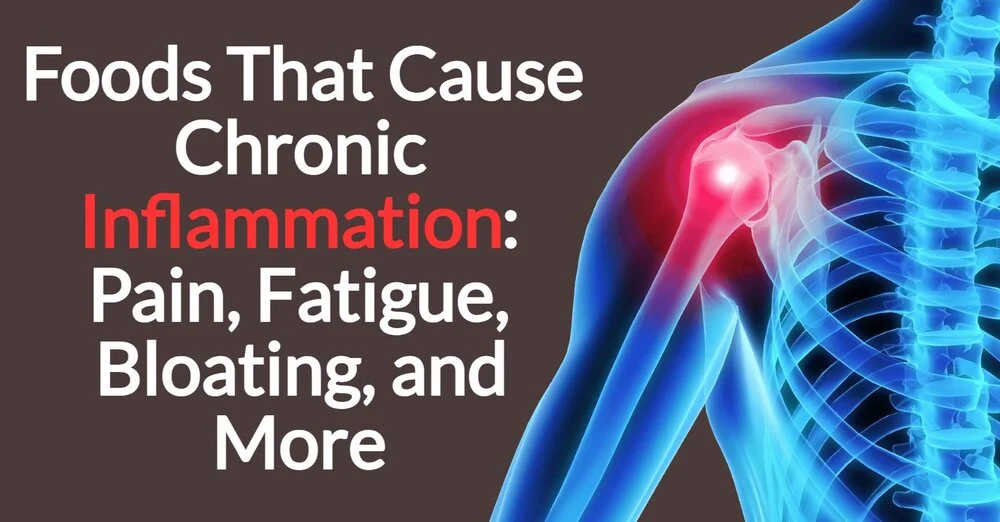Certain foods we eat can trigger unwanted immune reactions. Many processed foods contain ingredients that are unfamiliar to our bodies, which may lead to inflammation.
While inflammation is a natural defense mechanism, chronic inflammation can contribute to serious health problems over time.
Understanding Inflammation
Inflammation is the body’s natural response to injury or infection, involving immune cells, tissues, and chemical signals. Acute inflammation helps the body heal, but long-term or chronic inflammation can increase the risk of various diseases.
Acute vs. Chronic Inflammation
Acute inflammation is short-term and often visible, such as swelling, redness, warmth, or pain following an injury. Chronic inflammation, however, occurs gradually and can persist for months or years, often triggered by lifestyle factors like poor diet, stress, inactivity, or environmental toxins.
Top 10 Foods That Promote Inflammation
Your diet plays a critical role in chronic inflammation. Certain foods can trigger it, while others may help reduce it.
1. Refined Sugar
Foods high in refined sugar, like candies, pastries, and soft drinks, can elevate blood glucose levels, stimulating pro-inflammatory molecules. Sugar also disrupts the immune system and increases oxidative stress. Healthier alternatives include fruits, maple syrup, coconut sugar, or yacon syrup.
2. Gluten-Containing Grains
Wheat, barley, and rye contain gluten, which can trigger inflammation in sensitive individuals. Gluten increases gut permeability through zonulin, potentially causing systemic inflammation. Those with celiac disease or gluten sensitivity should avoid these grains or choose gluten-free options.
3. Vegetable Oils High in Omega-6
Oils such as corn, canola, soybean, and safflower are high in omega-6 fatty acids. An imbalance between omega-6 and omega-3 can promote inflammation. Healthier alternatives include olive oil, avocado oil, coconut oil, and sesame oil.
4. Dairy Products
Dairy is rich in saturated fat and allergens like lactose and casein, which may trigger inflammation. Plant-based alternatives such as almond, oat, or coconut milk can be beneficial.
5. Fried Foods
Deep-fried foods contain advanced glycation end products (AGEs) that increase inflammation markers like CRP and IL-6. Reducing fried food intake can lower chronic inflammation risk.
6. Refined Flour
White bread and refined pasta lack fiber and nutrients, causing blood sugar spikes and promoting inflammation. Whole grains are a better option, as they provide nutrients and slow carbohydrate absorption.
7. Red Meat
Red meat contains saturated fat and the molecule Neu5Gc, which can trigger immune responses and inflammation. Limiting red meat or choosing lean cuts helps reduce risk.
8. Processed Corn Products
High-fructose corn syrup, corn starch, and corn oil can spike insulin levels and cause inflammation. Minimizing processed corn intake is recommended.
9. Artificial Additives
Food additives and synthetic chemicals can provoke inflammatory responses. Studies show that certain artificial sweeteners and colorants may disrupt gut health and elevate inflammatory markers.
10. Trans Fats
Partially hydrogenated oils are strongly linked to inflammation and chronic disease. Replacing them with healthy fats like olive oil, nuts, and seeds can reduce inflammation.
Anti-Inflammatory Foods
Incorporating these foods into your diet can help fight inflammation:
1. Turmeric
Contains curcumin, which suppresses inflammatory enzymes and pathways.
2. Blueberries
Rich in antioxidants that reduce oxidative stress and lower pro-inflammatory cytokines.
3. Dark Leafy Greens
Kale, spinach, and collards provide vitamins, minerals, and phytochemicals that combat inflammation.
4. Avocado
Contains monounsaturated fats, polyphenols, and phytosterols with anti-inflammatory effects.
5. Watermelon
Alkalizing properties and nutrients like lycopene, citrulline, and vitamin C help reduce inflammation.
6. Hemp Seeds
Provide omega-3 and omega-6 fatty acids and gamma-linolenic acid (GLA), supporting anti-inflammatory pathways.
7. Medicinal Mushrooms
Shiitake, reishi, and turkey tail mushrooms contain polysaccharides that enhance immune function and fight inflammation.
8. Ginger
Contains gingerols and shogaols, compounds proven to reduce inflammation.
9. Beets
High in antioxidants, potassium, and magnesium, helping repair cells and lower inflammation.
10. Pineapple
Contains bromelain, an enzyme that reduces inflammation and regulates immune responses.
Conclusion
Inflammation is a natural defense mechanism, but chronic inflammation is linked to diseases like heart disease, diabetes, and cancer. Choosing anti-inflammatory foods and avoiding pro-inflammatory ones can significantly improve overall health.
FAQ – Foods That Cause or Reduce Chronic Inflammation
What is inflammation and how does it affect the body?
Inflammation is the body’s natural response to injury or infection, involving immune cells, tissues, and chemical signals. Acute inflammation helps the body heal, but chronic inflammation occurs gradually and can persist for months or years, increasing the risk of diseases such as heart disease, diabetes, and cancer.
Which foods promote chronic inflammation?
Foods that promote chronic inflammation include refined sugar, gluten-containing grains (wheat, barley, rye), vegetable oils high in omega-6, dairy products, fried foods, refined flour, red meat, processed corn products, artificial additives, and trans fats.
What are examples of anti-inflammatory foods?
Anti-inflammatory foods include turmeric, blueberries, dark leafy greens (kale, spinach, collards), avocado, watermelon, hemp seeds, medicinal mushrooms (shiitake, reishi, turkey tail), ginger, beets, and pineapple. These foods contain antioxidants, polyphenols, and enzymes that help reduce inflammation and support immune function.
How does diet influence chronic inflammation?
Diet plays a critical role in inflammation. Consuming processed foods, refined sugar, trans fats, and certain vegetable oils can increase inflammatory markers, while a diet rich in fruits, vegetables, healthy fats, spices, and antioxidants can reduce inflammation and improve overall health.
What are the health risks of chronic inflammation?
Chronic inflammation is linked to serious health issues such as heart disease, diabetes, cancer, autoimmune disorders, and cognitive decline. Managing inflammation through diet and lifestyle changes can significantly lower these risks.
References
- https://www.ncbi.nlm.nih.gov/pmc/articles/PMC3257681/
- https://www.healthline.com/nutrition/10-foods-that-cause-inflammation
- https://www.ajcn.nutrition.org/

Comments